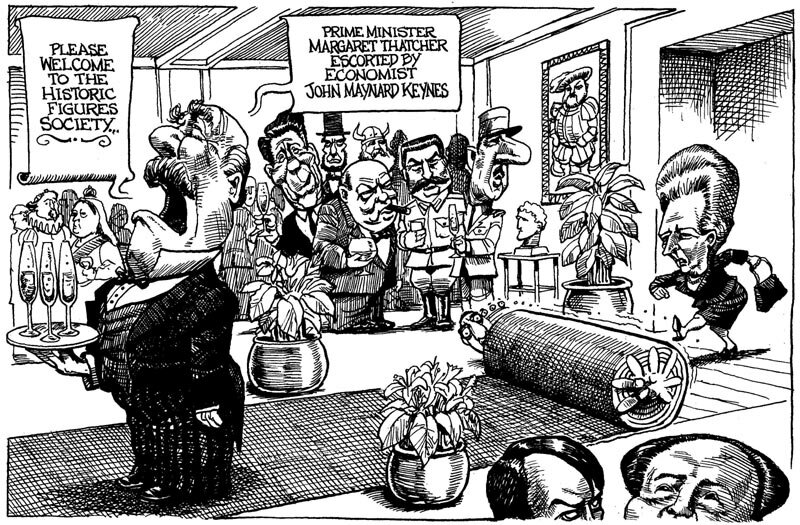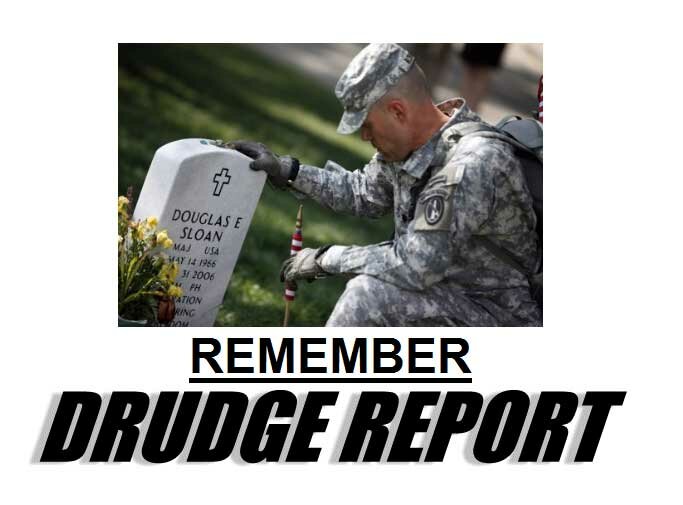Mark Steyn had a good piece about Geert Wilders, a Dutch politician that is living under threat of death by various peace loving Muslims. Steyn pointed out something that I’ve often noticed with anyone who dares to question Leftist orthodoxy, the usage of adjectives such as “far” and “extreme” to describe them by reporters. Steyn noted, “the determination to place him beyond the pale is unceasing: “The far-right anti-immigration party of Geert Wilders” (The Financial Times) . . . “Far-right leader Geert Wilders” (The Guardian) . . . “Extreme right anti-Islam politician Geert Wilders” (Agence France-Presse) is “at the fringes of mainstream politics” (Time) . . . Mr. Wilders is so far out on the far-right extreme fringe that his party is the third biggest in parliament. Indeed, the present Dutch government governs only through the support of Wilders’ Party for Freedom. So he’s “extreme” and “far-right” and out on the “fringe,” but the seven parties that got far fewer votes than him are “mainstream”? That right there is a lot of what’s wrong with European political discourse and its media coverage: Maybe he only seems so “extreme” and “far-right” because they’re the ones out on the fringe.”
I’m a fan of Geert Wilders, as I was of another noted Dutch politician, Pym Fortuyn. Like Wilders Fortuyn was tarred with the extremist label, probably the first and only openly gay man ever slandered by the Left as a far right anything. Fortuyn didn’t see himself that way, likening himself to center-left politicians of the day, and was an ardent admirer of American President John F. Kennedy. Like Kennedy Fortuyn paid the ultimate price for his views, gunned down in broad daylight by Volkert van der Graaf, a self-described environmental and animal rights activist who acted in defense of Muslims and “weak members of society.” Wilders has yet to pay this price, but has to move discreetly between safe houses to avoid it.
As Steyn notes, Europe’s multiculturalism that has allowed Islam to thrive without any push back has resulted in a society where gays are hunted without fear of persecution, women and children are raped, and Jewish children are legitimate targets living on borrowed time. Muslims are free to exercise their intolerant views on everyone as they see fit, and those who dare fight back are labeled as Islamophobes and far-right extremists by the very people under greatest threat. When the editor of DC’s gay newspaper the Washington Blade and his boyfriend get beaten up in Amsterdam by 7 Moroccans, and Muslim apologists explain away the attacks as kids unsure of their own sexuality, you know something has gone terribly wrong in Holland.
Islamophobia is an irrational dislike of Islam. There is nothing irrational about refusing to tolerate a religion that views women as less than property, all other religions and political institutions as invalid and heretic, and homosexuality as an abomination punishable by death. There is also nothing irrational about despising a religion whose adherents have called for your death. Yet this is exactly what has happened with Fortuyn and now Wilders.
Throughout world history Europe has been a place where ideas, ideologies and civilizations mix and occasionally clash. Like all complex problems, there is more going on in Europe than just the spread of Islam.
Europe had a long history of Jewish pogroms and persecution long before Adolf Hitler came to power and instituted the Final Solution. Deportations and massacres of Jews were common on the continent well before then, so in a sense Europe’s default state is anti-Semitism. The aftermath of World War 2 changed that briefly as local Europeans were paraded through the concentration camps to see what their hatred wrought, and the guilt caused by the Holocaust swung the elites behind the Jews and the nascent Jewish state of Israel. For decades after it’s founding Israel’s primary supporter was not the United States, it was France, and the ties went beyond the love of socialism that Jews share with Europeans, there was guilt as well. It wasn’t until de Gaulle himself switched sides and backed Israel’s Arab enemies starting in 1967, setting a policy that has continued since. The return to its innate anti-Semitism was complete when French ambassador Daniel Bernard stooped to scapegoating the Jews for all evil in the world, saying in 2001 “All the current troubles in the world are because of that shitty little country Israel.” The problem with guilt is that it’s not static. It gets old and begins to change and when it does it easily changes into hatred. One can only feel guilty for so long before the pain of guilt turns to jealousy towards those in whom the guilt is directed at. It’s a short step from that emotion to hatred, and it’s a step that Europeans all over the continent have taken.
James Oberg, a NASA scientist and engineer once quipped, “You must keep an open mind, but not so open your brains fall out.” The origins of multi-culturalism lies in cultural relativism, the belief that all cultures are equal. In order to achieve that equality multi-culturalists downplay the success and achievements of the dominant culture, criticizing its success as originating from the exploitation and domination of weaker cultures while exaggerating the latter’s achievements. Multi-culturalism became possible after the one culture took a dominant position in the world, and after World War 2 that culture was Western civilization based on Greco-Roman democratic ideals with Judeo-Christian morality supported by Anglo-American capitalism. Multi-culturalism attacked all three of these aspects of western culture in the post-war world. Having become entrenched in academia and to a lesser but substantial degree in non-elected governmental bureaucracies, multi-culturalists pushed for an end to the assimilation of immigrants into a country, viewing it as state enforced cultural genocide. As the western economies in Europe grew, they drew in millions of immigrants from around the Mediterranean, North Africa, and the Middle East. Because these immigrants were not forced let alone encouraged to assimilate, they found themselves at the fringes of their host societies, unable to speak the host nation’s language or participate in its civil life. Multi-culturalists quickly blamed the racism for this failure, unable to understand that contrary to their philosophy there are significant differences between western and Islamic culture, and that saying the two are alike shows an ignorance of both in the same way that Emerson took issue with the fallacy that all men were the same: “The wise man shows his wisdom in separation, in gradation, and his scale of creatures and of merits is as wide as nature. The foolish have no range in their scale, but suppose every man is as every other man.” Multi-culturalists now find themselves trapped by their ideology, defending the gender inequality and intolerance of Islam while unleashing its fury on any one who challenges it. They continually side with and condone the actions of wife beaters and gay bashers and murderers, the very people they are supposed to represent and in many cases are. In short their brains have fallen out.
These two changes in Europe, the return to its default anti-Semitism and the development of multi-culturalism that prevented assimilation of Muslim immigrants, would not have together ended the liberal freedoms that come with Western culture. The dollars spent by Western nations on cheap oil from the Middle East was recycled by the Saudis and other adherents of Wahhabi Islam around the Persian Gulf and used to fund mosques throughout Europe and North America. These mosques spread Wahhabi Islam, one of the strictest and least tolerant forms of Islam, across the West and throughout the Islamic world, replacing moderate and liberal forms that had arisen in the centuries after Mohammad’s conquering of the Arabian peninsula and nearby Levant. This “replacement” was often violent in places (e.g. in Pakistan, Thailand, Egypt) where internecine strife broke out between Wahhabi Sunni’s and followers of other Sunni sects or Shi’a, but happened quietly in the West, as other forms of Islam simply couldn’t compete with Saudi money to gain converts.
It is this toxic combination that Geert Wilders and his supporters recognize as a threat to their freedom, and by choosing to make a stand against it Wilders and those like him have found themselves condemned by the Left and hunted by Islamists. Their voices are few, but sound an alarm that warns the return to Europe of another of its default states: war.



